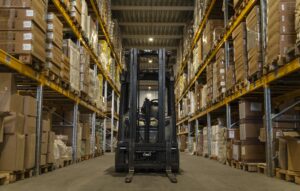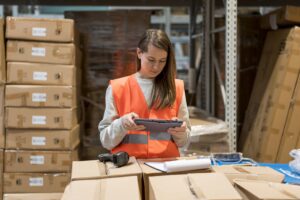As the world economy becomes increasingly globalized, the transportation sector plays a crucial role in delivering products to consumers. However, the environmental impact of this sector cannot be ignored. Carbon emissions, air pollution, and dependency on fossil fuels lead to serious environmental problems. Therefore, the development of sustainable and eco-friendly logistic practices is of great importance for the future of our planet. Fuel efficiency in logistics lies at the heart of reducing the transportation sector’s environmental footprint. Sustainable logistic solutions encompass renewable energy sources to replace fossil fuels, technologies to reduce emissions, and innovative strategies to improve business processes.
 Fuel Efficiency in Logistics: Eco-Friendly Fuel Alternatives
Fuel Efficiency in Logistics: Eco-Friendly Fuel Alternatives
In eco-friendly logistic approaches, the use of sustainable energy sources is a priority. These approaches include alternative energy sources such as electric vehicles, biofuels, and hydrogen fuel cells. For instance, electric trucks and vans used in urban distribution operations cause much lower carbon emissions compared to traditional fossil-fueled vehicles. Hydrogen fuel cells, in particular, hold great potential for long-distance transportation. Adopting these technologies can significantly reduce the logistics sector’s carbon footprint and play an important role in combating global warming.
Route Optimization and Eco-Friendly Logistics
Eco-friendly logistic practices are not limited to alternative fuels; smart route planning and optimization are also of great importance. Advanced GPS and telematics systems determine the shortest and most efficient routes, reducing fuel consumption and emissions. These systems analyze traffic conditions, weather, and delivery times in real-time, enhancing the efficiency and environmental sustainability of logistic operations. Smart route optimization also reduces operational costs by increasing the number of deliveries per vehicle and reducing empty runs.

The Role of Technology in Logistics: Artificial Intelligence and Big Data
Artificial Intelligence (AI), machine learning, and big data analysis play a critical role in developing strategies. These technologies are used to optimize logistic operations, improve inventory management, and increase supply chain efficiency. For example, AI-powered systems can be more accurate in demand forecasting, leading to more efficient management of stock levels and reducing unnecessary transportation. Big data analysis enables logistic companies to monitor their operations and supply chains in real-time, allowing them to make more efficient and eco-friendly decisions.
Fuel Efficiency and Corporate Responsibility in Logistics
Eco-friendly logistics is not just an operational necessity for companies but also a reflection of corporate social responsibility. Green logistic practices help companies reduce their environmental impact, achieve sustainability goals, and respond to consumers’ increasing environmental awareness. Moreover, sustainable practices enable companies to cultivate a green image, thereby enhancing their brand value.

Global Trends and the Role of Regulations
Globally, governments and international organizations are offering regulations and incentives to make the transportation sector more eco-friendly. These trends encourage companies to adopt greener logistic solutions and develop policies that support sustainable practices. For example, carbon taxes and emission trading systems motivate companies to switch to lower-carbon transportation methods, while investments in renewable energy sources support this transition.
Adopting eco-friendly logistic practices not only provides solutions to current environmental challenges but also helps build a more sustainable future. Every organization in the transportation sector can be part of this change by adopting eco-friendly approaches. This is not only an environmental imperative but also an opportunity for long-term business success. Every step taken towards leaving a healthy planet for future generations is valuable and meaningful.
 Fuel Efficiency in Logistics: Eco-Friendly Fuel Alternatives
Fuel Efficiency in Logistics: Eco-Friendly Fuel Alternatives




